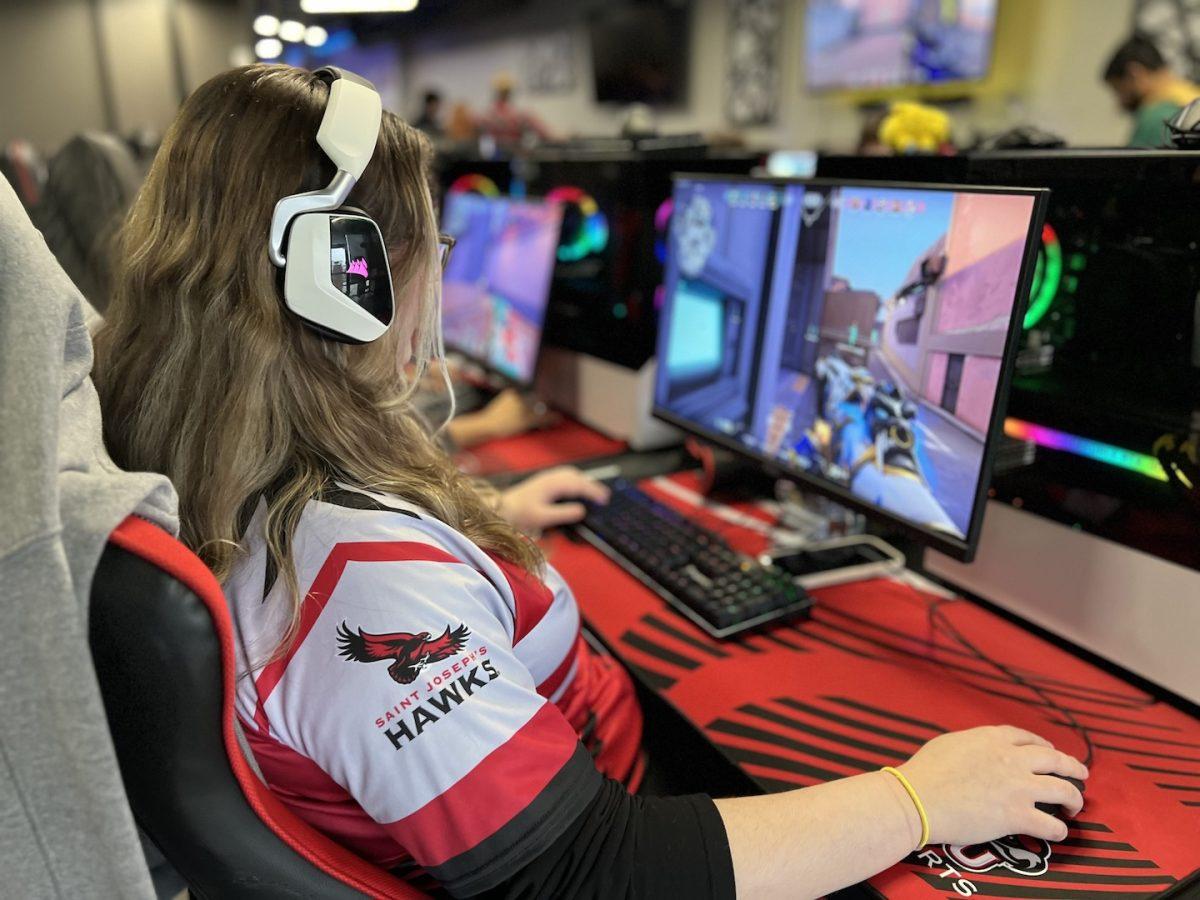The best and worst part about the online world of video games is that no one truly knows who you are.
Regardless of gender identity, sexuality, age, race, religion, ethnicity or nationality, most people can find a safe space online. People who befriend strangers on the internet often do not care about what they look like behind the screen.
But it can also allow people to use their anonymity as an opportunity to be openly discriminatory. As a result, women and players who sound like women face significant levels of online harassment.
According to a 2023 survey by Sky Broadband, of 4,000 women gamers surveyed, 49% have faced abuse or harassment when playing or streaming online. That number increases to 75% for women gamers aged 18 to 24.
After more than three years of playing a variety of personal computer (PC) games, including Riot Games’ first-person shooter (FPS), “Valorant,” it is hard to ignore the sexism and harassment that comes with being a “gamer girl.” So, for five days last semester, I decided to use a real-time AI voice changer, Voicemod, to change my voice to sound like a man in order to document how different a game of “Valorant” becomes.
Spoiler alert: It’s much different.
I have been gaming for as long as I can remember. As an only child, I spent a lot of time bouncing between my Wii, Xbox and Nintendo DS, playing a variety of games from Minecraft to taking care of pets to racing cars. There has always been a clear distinction between “boy games” and “girl games,” the latter leaning more towards domestic themes like cooking, dress-up or pet care. It was expected that girls did not play FPS games or other fighting games. It wasn’t until the covid-19 pandemic that I became interested in this genre of gaming.
Amanda Cote, Ph.D., associate professor in the department of media and information and director of the Serious Games Certificate at Michigan State University, told me that the history of games as “a masculinized technology is a large contributor to gender divides and sexism within gaming culture.”
“Because games have been framed as ‘for’ men and boys rather than women and girls — via game content, game press, advertising, and more — men players are seen as the norm, while women and non-binary players are often viewed as outsiders,” Cote wrote in response to written questions from The Hawk. “The assumption that gaming is for boys can also lead members of that group to exclude others because they want to preserve gaming as a homosocial space (a space dominated by individuals with a shared identity) where ‘boys can be boys.’”
Like other FPS games, “Valorant” is home to many players who do not like women, or at least players who sound like women. In addition to racism and homophobia, misogyny and overall sexism are huge problems within the game’s team chat feature, with the anonymity of PC gaming granting men a sort of invincibility when it comes to the things they say. As a result, many “gamer girls” opt to simply not talk at all because they expect men on the team to either be rude or make sexual harassment “jokes.”
Megan Condis, Ph.D., assistant professor of game studies at Texas Tech University and author of “Gaming Masculinity: Trolls, Fake Geeks, and the Gendered Battle for Online Culture,” said the world of video games is a “microcosm of American society.”
“Unfortunately, American society still has a lot of racism and sexism and transphobia in it,” said Condis, who has been playing “League of Legends” for over 10 years.
Setting up Voicemod was much easier than I expected. All I had to do was make an account, download the software and set it to my correct input and output device. I opted not to pay for the premium version, which offers access to all voice mods.
After testing out my mic with two online women friends, they said I sounded as if I had “a vocal cord transplant that went really bad.” Listening to a clip of myself talking a few hours later, I confirmed their judgment.
As we started playing the first night, I was elected as the “man” of the group, which meant saying ‘Hi’ once we loaded into a game and were placed with random players on our team.
I almost felt invisible as each game went on. In character selection, in the loading screen, during the games themselves, I no longer stood out as a woman player like I usually do.
During one game a few nights into this experiment, a boy — I say “boy” because he sounded as if he was 15 years old, but hey, it could have been another 21-year-old journalist with a voice changer — started making uncomfortable comments to one of my friends after she used voice chat mid-game. I found I had the confidence to stand up for her and say something back without fear of being made fun of myself. He did not talk much after that.
Elle Karff ’24, president of St. Joe’s esports club and assistant manager of public relations for the club’s league, the Eastern College Athletic Conference (ECAC), said women gamers get trapped in stereotypes that do not often apply.
“Overall, it’s definitely not the most positive experience, especially in ‘Counter-Strike,’” Karff said, referencing another FPS game known for its toxic male community. “If you talk in the voice chat, you’re more likely than not to be yelled at and over-sexualized completely involuntarily.”
Both Condis and Cote also mentioned the role that game developers play in this ongoing issue.
“I feel like the tide has turned a little bit in the sense where there was a moment where developers didn’t want to be a part of this conversation,” Condis said. “A lot of these game developers [recognize it] actually is their responsibility to hire community moderators and to build safety systems into our games.”
Cote said community moderation is important.
“I do think things can get better if gaming companies and communities set and enforce clear codes of conduct for players or community members,” Cote wrote. “They should also actively represent and include diverse characters and players in their games and advertisement.”
Despite these challenges, Karff said the future is bright for women in esports.
“As a whole, the community is being financially supported and more widely recognized now, especially on the collegiate level that we are a part of here,” Karff said.
That’s been true for me. I randomly picked up “Valorant” in the midst of the pandemic, and now I am the captain and game lead for St. Joe’s club team. I have played in two LAN tournaments in New York, wearing my professional St. Joe’s esports jersey.
As I continued this experiment over the following days, I found myself communicating more with the random male players on my team and joking around with them. I felt as if I had a whole new persona (my friends started calling me Julien). The phrase “one of the boys” started to feel real.
But I am not one of the boys. In fact, being a “gamer girl” is one aspect of my identity I feel proud of, and not something I want to change about myself just to fit into a male-dominated norm.
As Cote put it, using a voice changer, not talking at all or sticking to single-player games “can hide women’s existing participation in game spaces and reinforce the stereotype that gamers are men.”
After my experiment, I deleted Voicemod and returned to the comfort of my gamer girls, now with the confidence to talk back and embrace who I am.

















































